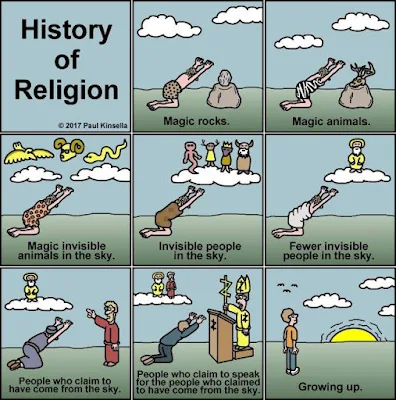I am passionate about Palestine and openly critical of Israel and any Zionist movement.Occupation is indefensible and I never forget that. This year marks the 69th anniversary of the Nakba - "the Catastrophe" - when more than 750,000 Palestinians were forced to flee their homes by Zionist forces. A society was dismembered and fragmented.
On Monday, May 15th ,events will be held across the world including demonstrations, protests and conferences. We will commemorate 69 years of exile for the Palestinian people and remember the dispossession and violent removal from their indigenous land and stand in solidarity with their ongoing struggle to return.
This interactive map, featured on the Guardian website, shows the extent of Palestine's changed landscape - hundreds of Arab villages and towns abandoned, attacked and de-populated throughout the aggressive and violent land-grabbing. This oppression of the Palestinian people, which began in 1948,some would say 1917, didn’t end in 1948. The Israeli Government’s theft and colonisation of Palestinian land and its military occupation continue to this day.
The Nakba, which translates as the catastrophe, was the beginning of the modern day situation in which the Palestinians find themselves living under Israeli occupation in the West Bank and Gaza, as second-class citizens within Israel or as exiles and refugees around the world.
Even the word 'Nakba' was banned by the Israeli Minister of Education in 2009, and was removed from school textbooks. Prime Minister Benjamin Netanayah said at the time that the word was tantamount to spreading propoganda against Israel. But the word Nakba is the term that about a fifth of Israel's population, the Palestinians use to describe this day.
This is the Palestines history, it is essential we should be allowed to talked about. It is it not wrong to question, when other regimes oppress, we question them too, we have a duty to criticise and condemn, when fundamental freedoms and rights are violated. Any state that acts aggressively is open to criticism. All human beings are entitled to human rights.
Today refugees are still waiting to have their homes and lands returned to them, after all these years, of living in camps, being displaced. Under daily occupation they are forced to daily endure the humiliation, demonisations, metered out to them Today illegal settlers and settlements still removing people from their homes, with seperation walls, humiliation and discrimination.Today the Palestinians world is still being stolen, as occupiers daily steal all that they possess, the tears of yesterday forge today's resistance .Israel to this day have refused to recognise the Palestinians right of return as expressed in the UN General Resolution 194, Article 11,
We must remember the Nakba of 1948, and continue to campaign for a just solution so that Palestinians can enjoy the rights that we take for granted.
Today, there are more than 7 million Palestinian refugees, defined as people displaced in 1948 and their descendants. A core Palestinian demand in peace negotiations is some kind of justice for these refugees, most commonly in the form of the "right of return" to the homes their families abandoned in 1948.
Israel can't accept the right of return without abandoning either its Jewish or democratic identity. Adding 7 million Arabs to Israel's population would make Jews a minority, Israel's total population is about 8 million, a number that includes the 1.5 million Arabs already there. So Israelis refuse to even consider including the right to return in any final status deal.
I acknowledge that there are many Israelis who have become increasingly aware of the Nakba, and the more they understand the more shameful side of their history, the more likelihood it is that another catastrophe in this land can be prevented. Increasingly there are some who reject the notion that they were chosen to displace and cause suffering to others. They too will stand together with Palestinians in mourning .Many because of deep emotion will not be able to accept this, because of their daily witness to the ongoing oppression. I know deep down whose side I firmly support.
One of the core problems in negotiations, then, and in moving forwards is how to find a way to get justice for the refugees that both the Israeli and Palestinian people can accept. Ideas proposed so far include financial compensation and limited resettlement in Israel, but no two leaders have ever agreed on the details of how these would work. And sadly the devastation continues as Israel and its colonial outposts in the West Bank continue to seize peoples lands, and consistently destroy what remains of Palestine , along with this peoples olive trees and wheat fields.Many Palestinians still have a key on a chain around their necks. These are the keys to homes in Palestine which they were forced to abandon in 1948, 1967.1987, or at any time since.
This then is a narration without an end, until oppression is vanished, human rights restored, Gaza and the West Bank reunited, after years of forced exile, the right to return is this peoples destiny,carrying the twin-promise of the liberation of the imagination, and of their land. We should also remember that the barriers to freedom are man made and can be removed.
In an attempt to understand the catastrophe, here is a reading list of key books on the Israel-Palestine conflict, from Ghada Karmi, Mahmoud Darwish, Naji al-Ali, Ilan Pappe, Edward Said, Shlomo Sand, and more.
http://www.versobooks.com/blogs/3210-nakba-day-reading-list?utm_source=facebook&utm_medium=cpc&utm_campaign=US+UTM+Nakba+Day+reading+list
On the 8th June British voters have the power to choose who represents them in parliament. This is also our chance to convince candidates to support Palestine.
http://palestinecampaign.iparlsetup.com/lob…/votepalestine17










